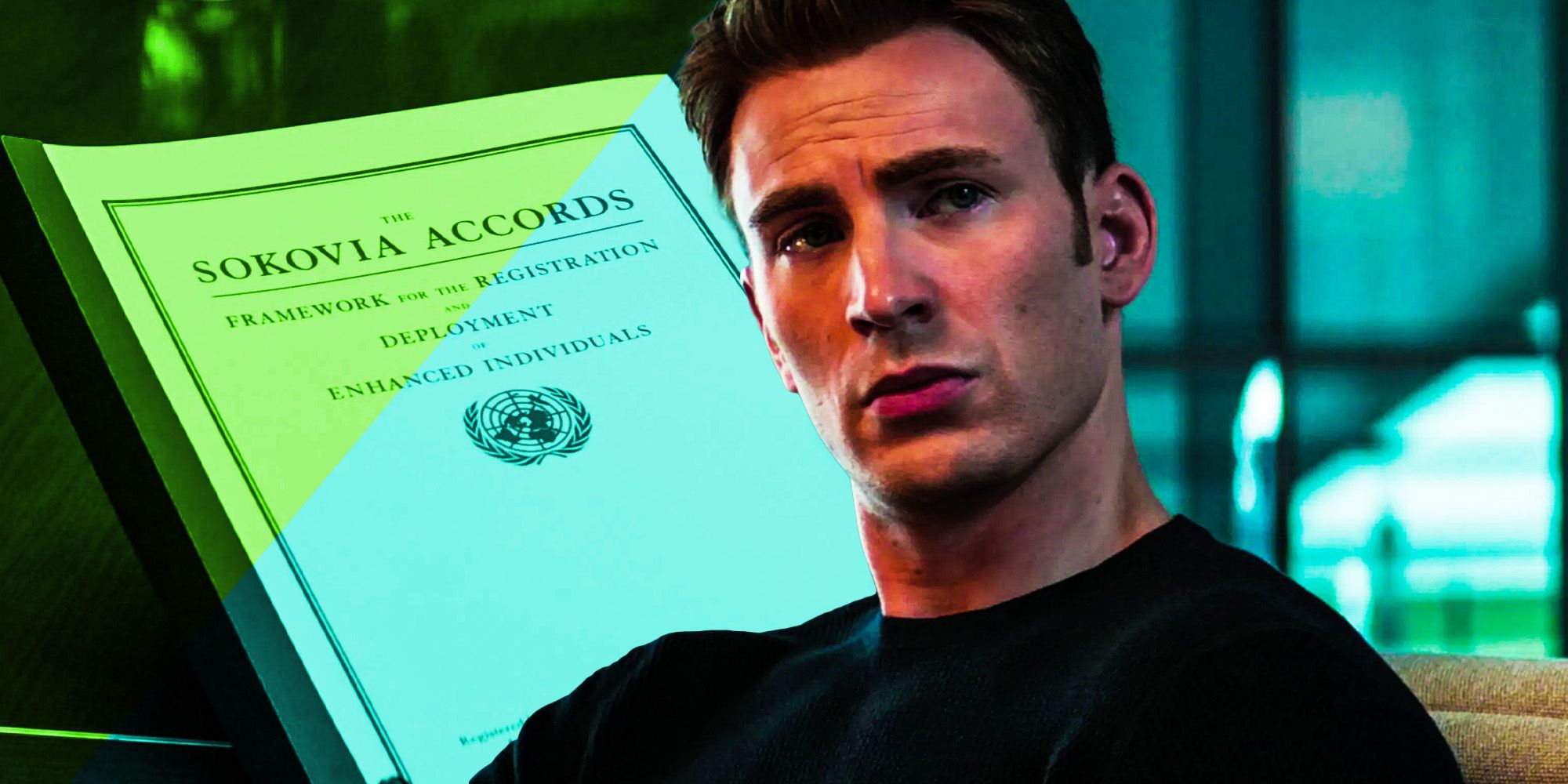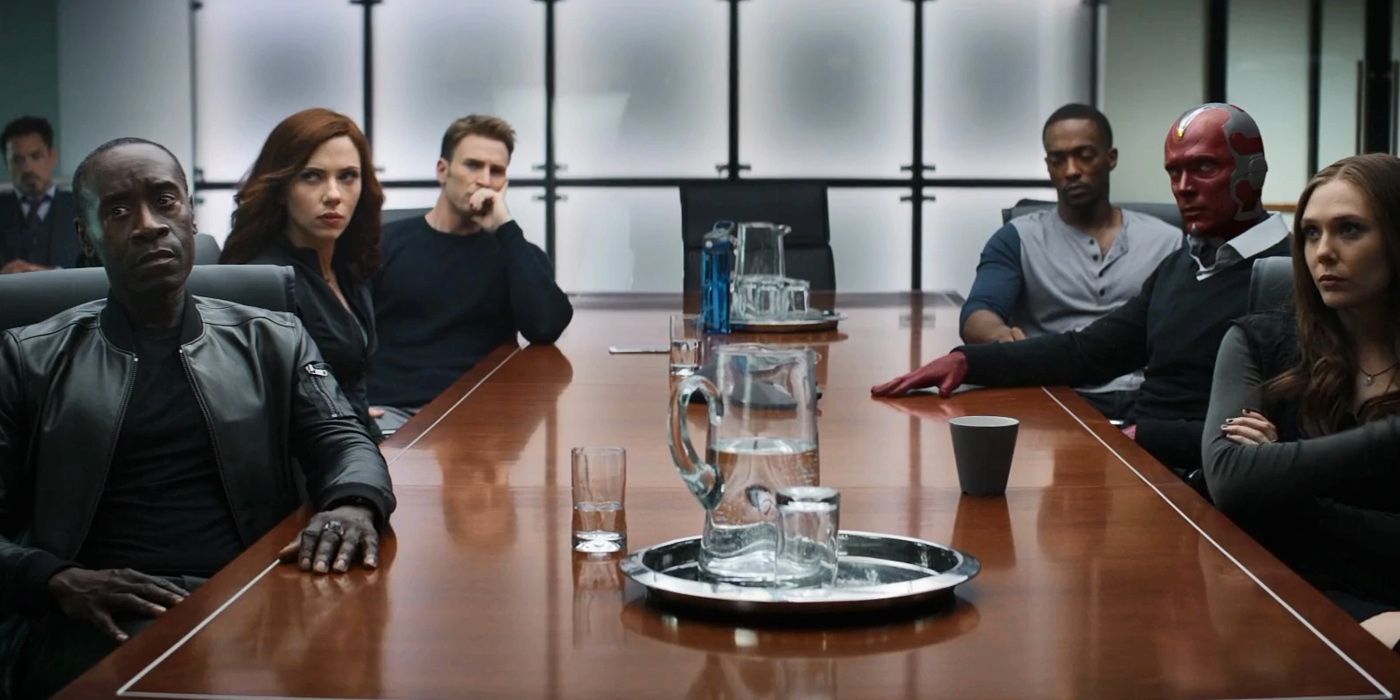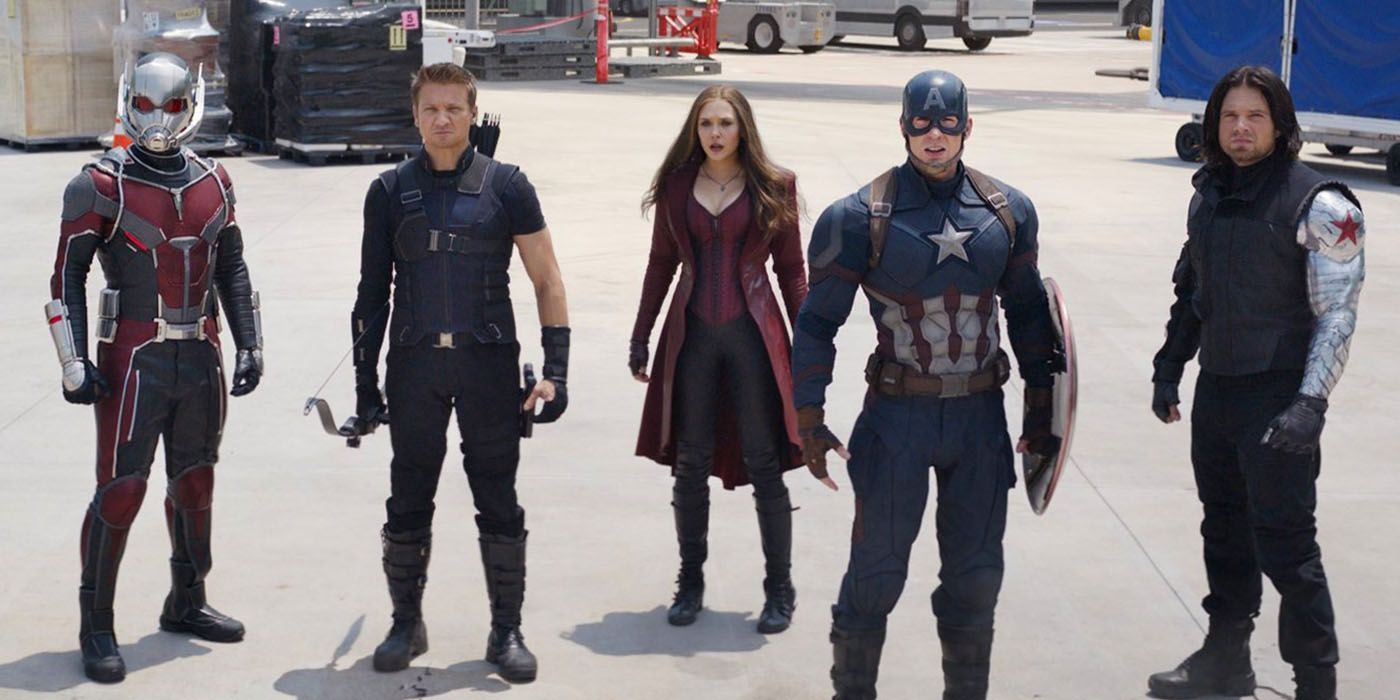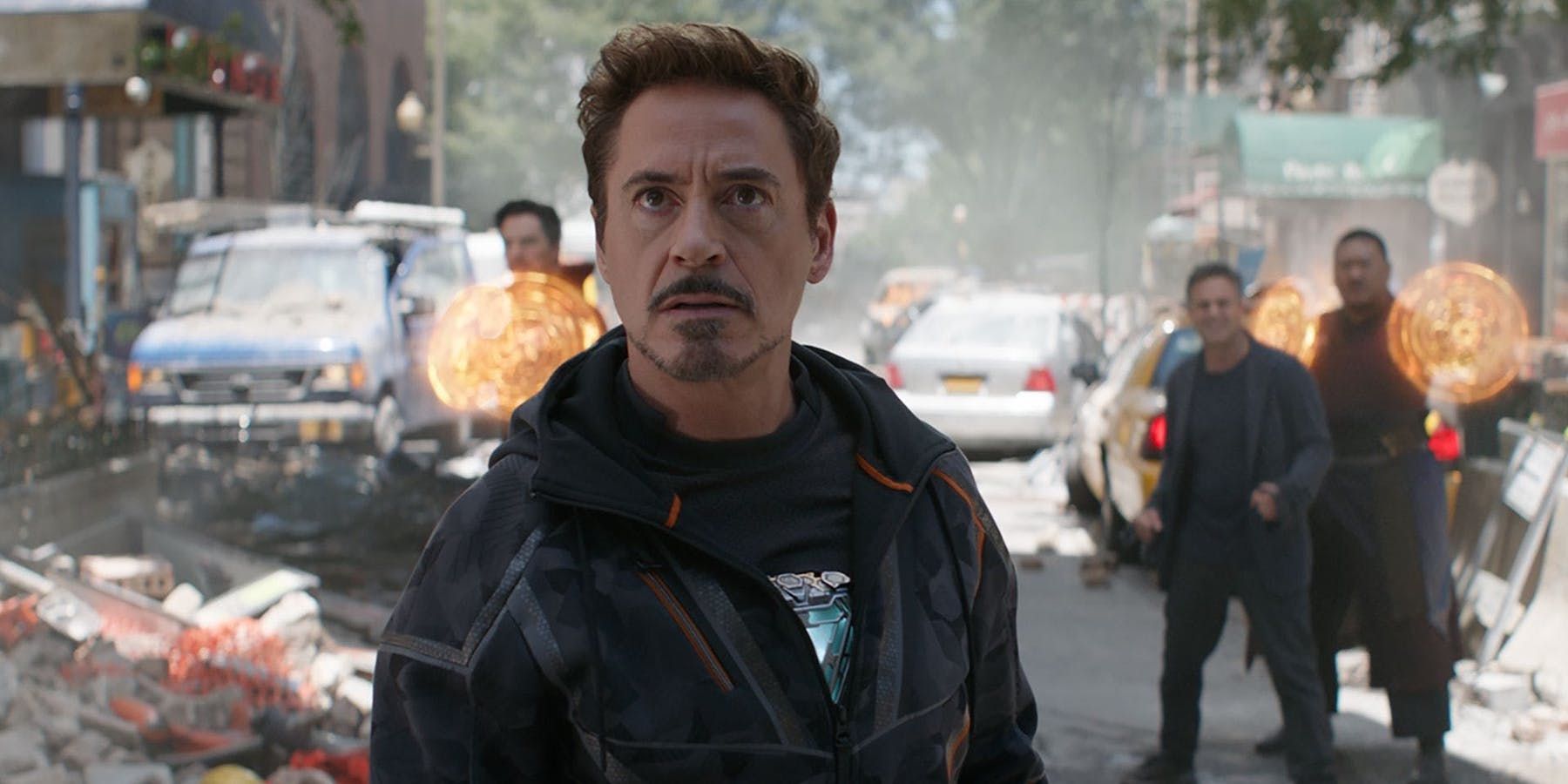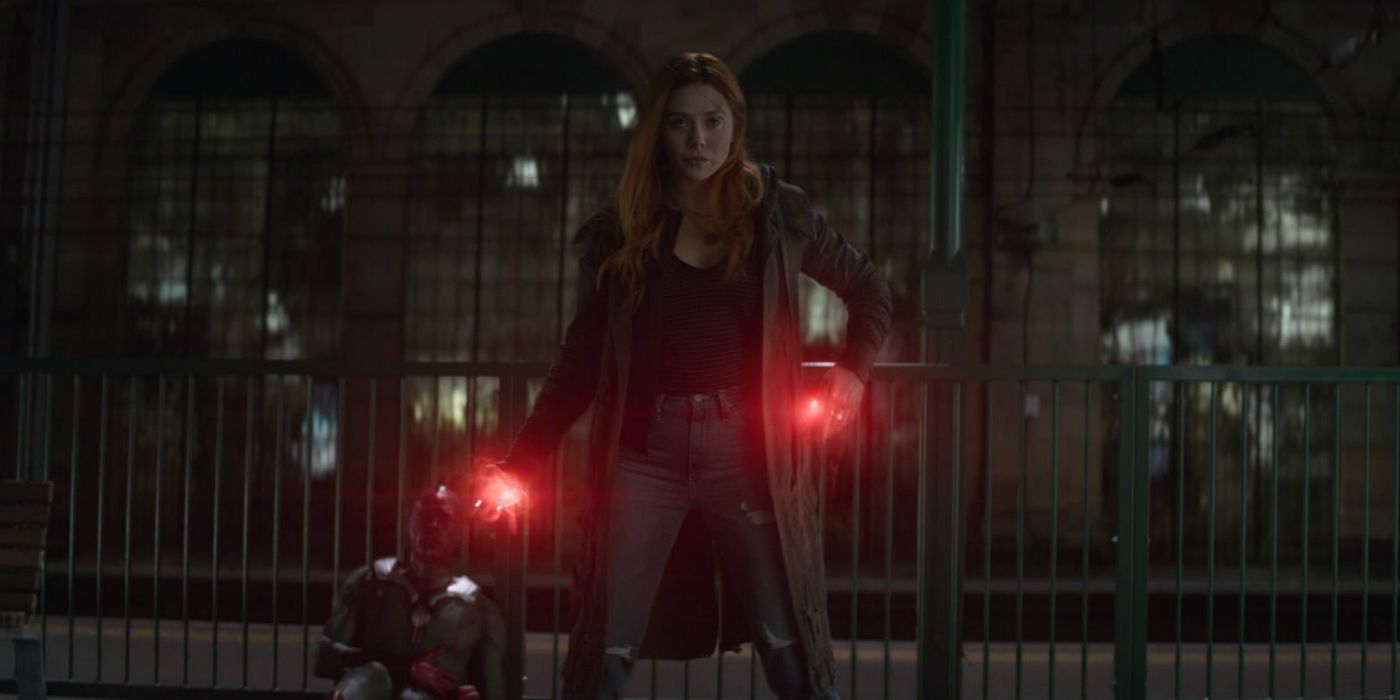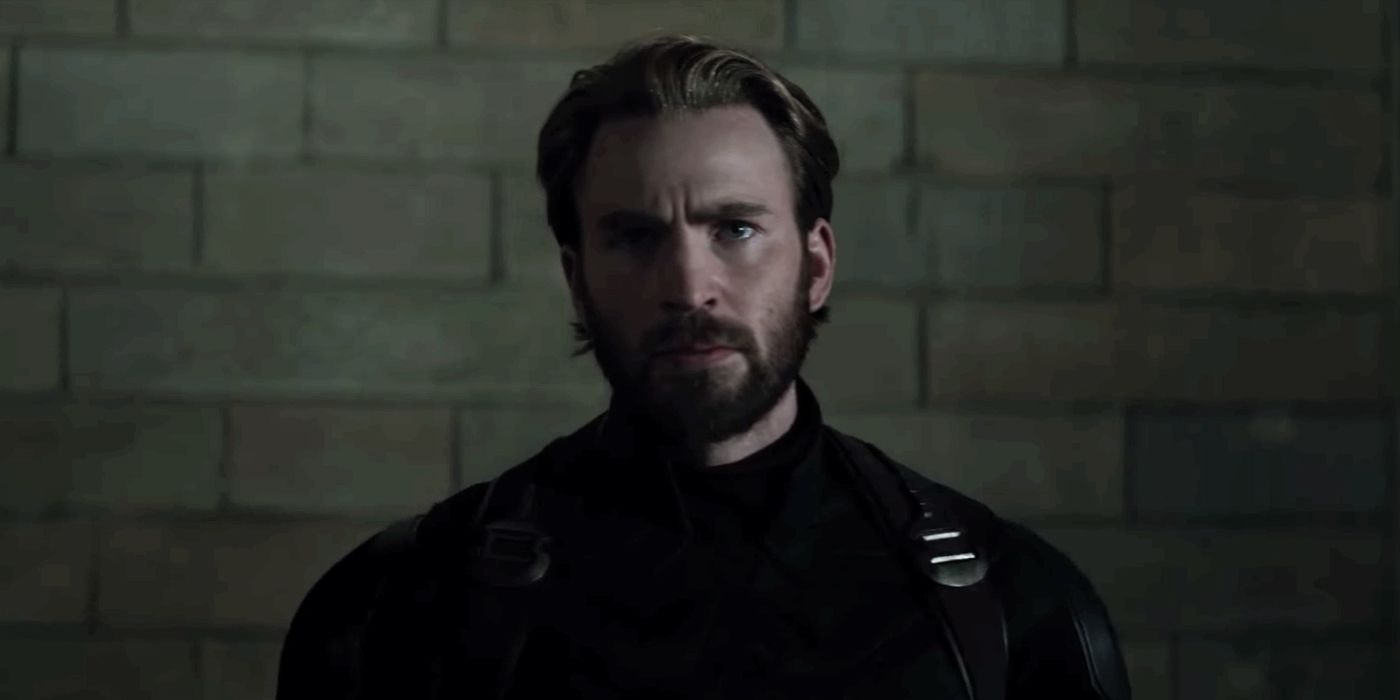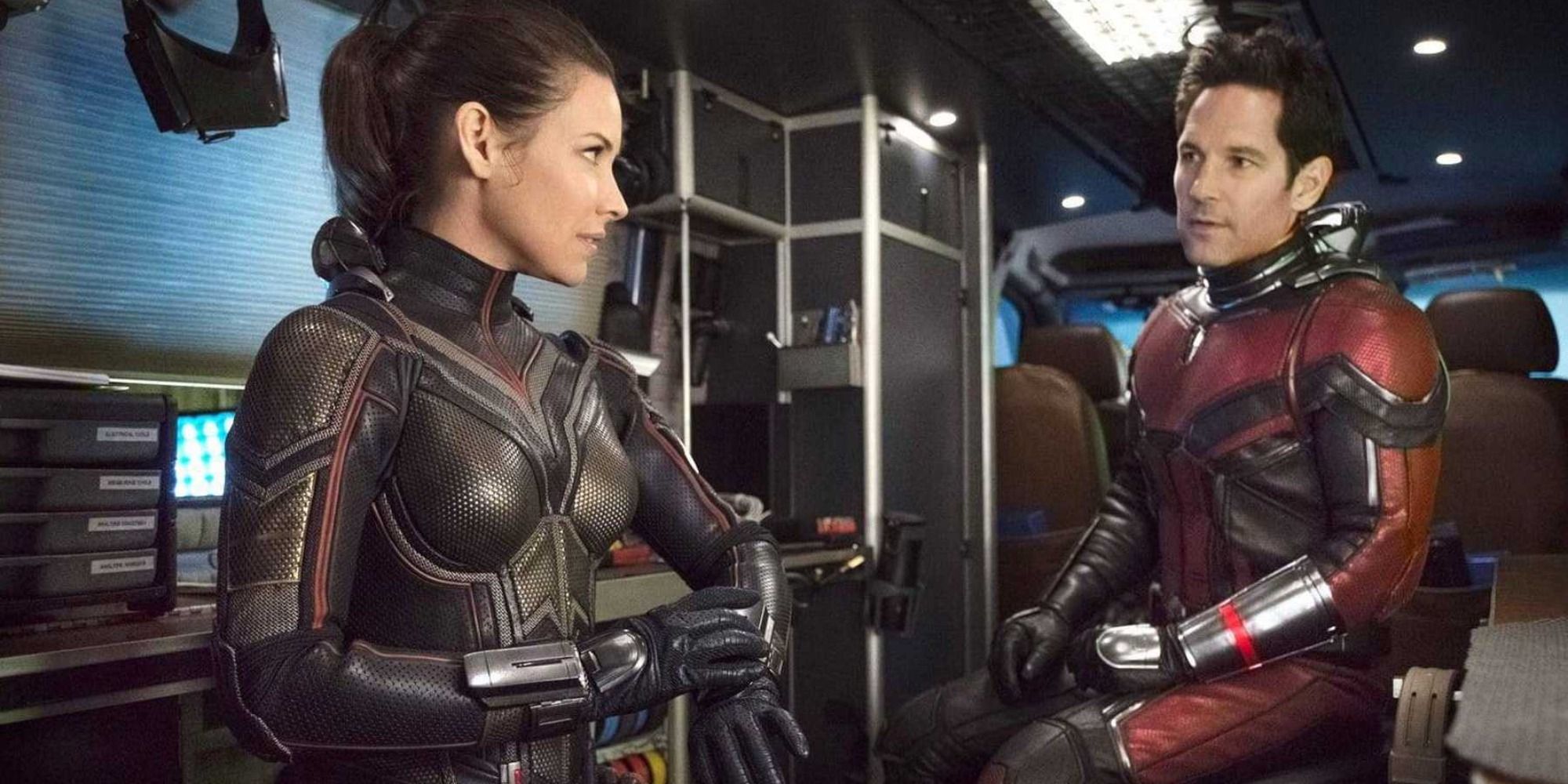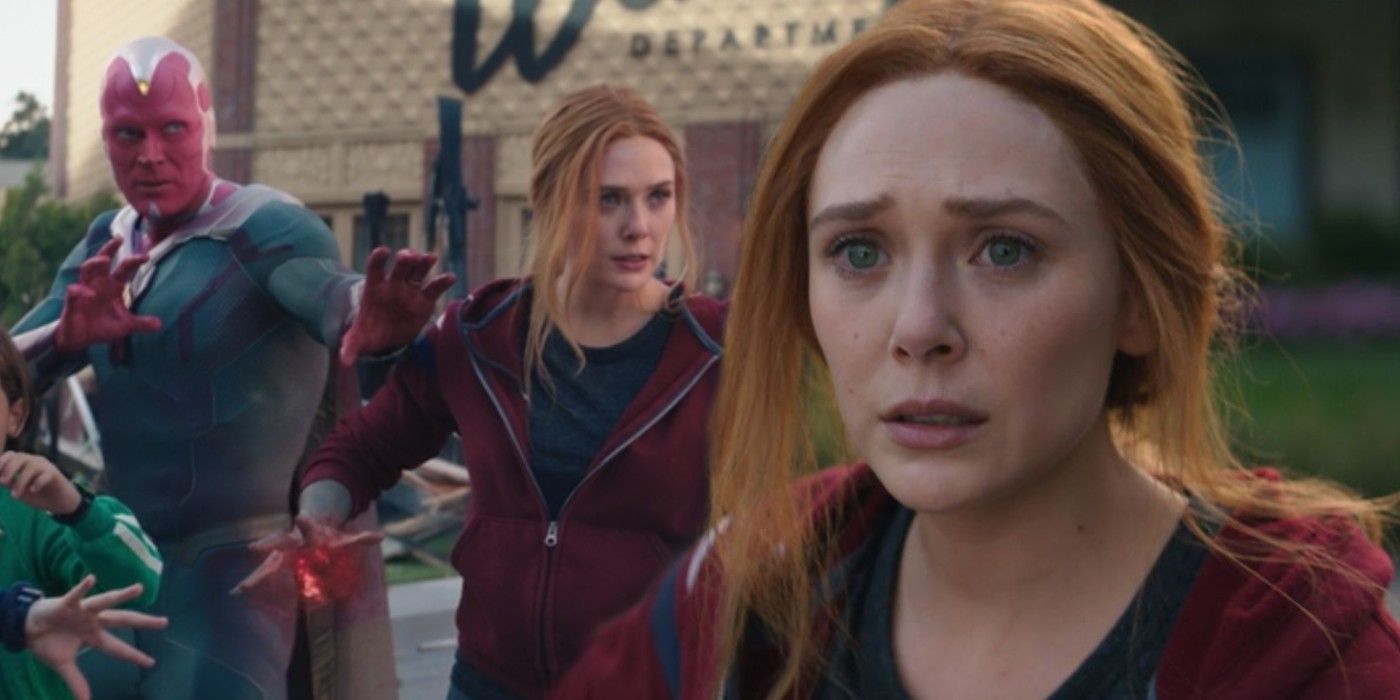The Sokovia Accords continue to impact the Marvel Cinematic Universe and the Avengers as well as other superheroes have been subject to its many rules and restrictions. Introduced in Captain America: Civil War in 2016, the Sokovia Accords are the MCU's version of the Superhero Registration Act introduced in Marvel Comics' Civil War storyline. To date, the Sokovia Accords remain the law of the land in the MCU, including the farthest points in the timeline that fans have seen so far, WandaVision, The Falcon and The Winter Soldier, and Spider-Man; Far From Home.
The impetus for the drafting of The Sokovia Accords: Framework for the Registration and Deployment of Enhanced Individuals was an Avengers mission in Lagos, Nigeria that went tragically awry in 2016. At the start of Captain America: Civil War, Wanda Maximoff (Elizabeth Olsen) used her powers to prevent Brock Rumlow (Frank Grillo) from committing suicide and killing others by detonating an explosive device in a public market. Maximoff miscalculated in her magic and Rumlow exploded next to a building, killing 26 people, including 11 Wakandan relief workers. Soon after, Secretary of State Thaddeus Ross (William Hurt) presented the Avengers with the Sokovia Accords. Ratified by 117 countries, including the United States, Germany, and Wakanda, the Accords were designed to provide accountability for all "enhanced" (i.e. superhuman) individuals, with a special emphasis placed on the Avengers and their activities.
While many of the Avengers, including Tony Stark, a.k.a. Iron Man (Robert Downey Jr.), understood the necessity (or, at least, the inevitability) of the Sokovia Accords and agreed to sign on, the most prominent detractor was Steve Rogers, a.k.a. Captain America (Chris Evans). Baron Helmut Zemo (Daniel Bruhl) then took advantage of the schism that formed within the Avengers to break the superhero team apart. By the end of Captain America: Civil War, three members of the Avengers as well as Scott Lang, a.k.a. Ant-Man (Paul Rudd) were deemed violators of the Sokovia Accords and imprisoned in the supermax prison, The Raft. They were later freed by Steve Rogers, but while Lang and Clint Barton, a.k.a. Hawkeye (Jeremy Renner) copped to plea bargains and agreed to house arrest upon returning to the United States, the other members of Steve Rogers' Secret Avengers group spent the next two years as international fugitives.
Even after the Avengers killed Thanos (Josh Brolin) and resurrected the billions of people the Mad Titan wiped out of existence with the Infinity Gauntlet in Avengers: Endgame, the Sokovia Accords remain in place and continue to enforce superhuman accountability. There are also non-enhanced individuals, like Sharon Carter (Emily VanCamp), who remain fugitives and declared enemies of the state as of the events of The Falcon and The Winter Soldier. The Sokovia Accords is a huge, complex document comprised of numerous bylaws and protocols, and they also contain an authoritarian bent that justifiably alarmed Steve Rogers. However, the MCU has learned to live with the Sokovia Accords, for better or worse. The Sokovia Accords' known primary laws that have applied to the Avengers and other costumed heroes in the MCU are as follows.
Signing The Sokovia Accords Is Mandatory For All MCU Superheroes
The Accords rule that any enhanced individual, which includes those whose powers are biological or stem from technology as well as people like Natasha Romanoff, the Black Widow (Scarlett Johansson) and Clint Barton, who have no superpowers but are Avengers, must register with the United Nations and provide biometric data and DNA samples. In addition, those with secret identities must reveal their real names to the UN. While this doesn't necessarily mean that every superhero's identity becomes public knowledge, their true names are entered in a global database so they are known to the authorities. Registered enhanced individuals must also wear tracking bracelets at all times.
Refusal To Sign The Sokovia Accords Means Immediate Retirement Or Criminal Prosecution
Secretary Ross made it clear to the Avengers that signing the Sokovia Accords is mandatory or they would have to retire - i.e. forced out. An enhanced individual who refuses to sign the Sokovia Accords but chooses to continue their non-sanctioned activities is subject to criminal prosecution and indefinite detention without trial. This is why, upon refusing to sign the Accords, Steve Rogers was immediately pursued by international authorities, and his defiance of the law was compounded by his helping Bucky Barnes (Sebastian Stan), who was thought to still be the Hydra assassin known as the Winter Soldier. Everyone who helped Rogers and Barnes in Captain America: Civil War was also in violation of the Accords, and that includes Natasha Romanoff, who signed the Accords but turned and sided with Steve Rogers.
The Avengers Will No Longer Be A Private Organization And Are Subject To Government Oversight
Making the Avengers accountable was largely the reason why the Sokovia Accords were drafted. Following the destruction of Sokovia and the tragedy in Lagos, as well as their battles with the Chitauri in New York City and Hydra in Washington D.C., a rising tide against the Avengers was growing internationally. The Sokovia Accords ended the Avengers' run as a private organization and made them directly accountable to the United Nations globally as well as the local governments they operate in, which is primarily the United States since most of the Avengers are U.S. citizens.
No Superhero Is Allowed To Operate Outside Of Their Own Country Without UN Approval
The Avengers' ability to enter any country at will, such as how they operated in South Africa and South Korea in pursuit of Ultron (James Spader), was ended by the Sokovia Accords. Upon signing, the Avengers were no longer allowed to take action in any country other than their own without the express consent of a United Nations panel - if and only if that panel deems it necessary. Clearance can also be granted by another nation's government. In addition, governments are also forbidden from deploying enhanced individuals in other countries without that country's approval. This is why while on a mission in North Africa in The Falcon and The Winter Soldier's premiere episode, Sam Wilson (Anthony Mackie) was forbidden from entering Libyan airspace, which would violate the Sokovia Accords.
Using Superpowers To Break The Law Or Engage In Vigilante Activity Means Indefinite Detention Without Trial
An enhanced individual who refuses to sign the Sokovia Accords but chooses to continue their non-sanctioned activities is subject to criminal prosecution and indefinite detention without trial. The purpose of this protocol is to put an end to costumed, superpowered vigilantes in the MCU. Further, any enhanced individual who uses their powers to break the law will be deemed a threat to the safety of the general public and can be detained indefinitely without trial. The elimination of the rights of due process is one of the harshest and most controversial aspects of the Sokovia Accords.
The Use Of Technology To Grant Superpowers Will Be Regulated
The protocol regarding the regulation of advanced technologies applies to human-designed tech like Stark's Iron Man suits as well as alien technologies like those of Asgardians or the Chitauri. This is why, in Ant-Man and the Wasp, Hank Pym (Michael Douglas) and Hope Van Dyne (Evangeline Lilly) were on the run because Pym refused to register his technology with the Sokovia Accords. This also made Scott Lang's activities even more illegal since he broke his own house arrest and used banned Ant-Man tech in the film. It's not yet known if, post-Avengers Endgame, Hank Pym and Hope Van Dyne signed the Sokovia Accords but that question will likely be answered in Ant-Man and The Wasp: Quantumania.
Section 36B: The Creation Of Self-Aware Artificial Intelligence Is Prohibited
WandaVision introduced Section 36B of the Sokovia Accords, which deals with the creation of self-aware artificial intelligence. S.W.O.R.D. Acting Director Tyler Hayward (Josh Stamberg) accused Wanda Maximoff of stealing the Vision's (Paul Bettany) corpse and illegally reactivating him, although it turned out he was just framing her and S.W.O.R.D. still possessed and brought the Vision back online as the White Vision. The ban on self-aware artificial intelligence stems from Tony Stark's creation of Ultron, which led to the destruction of Sokovia and ultimately resulted in the Sokovia Accords, its namesake protocol designed to prevent Marvel Cinematic Universe history from repeating itself.

